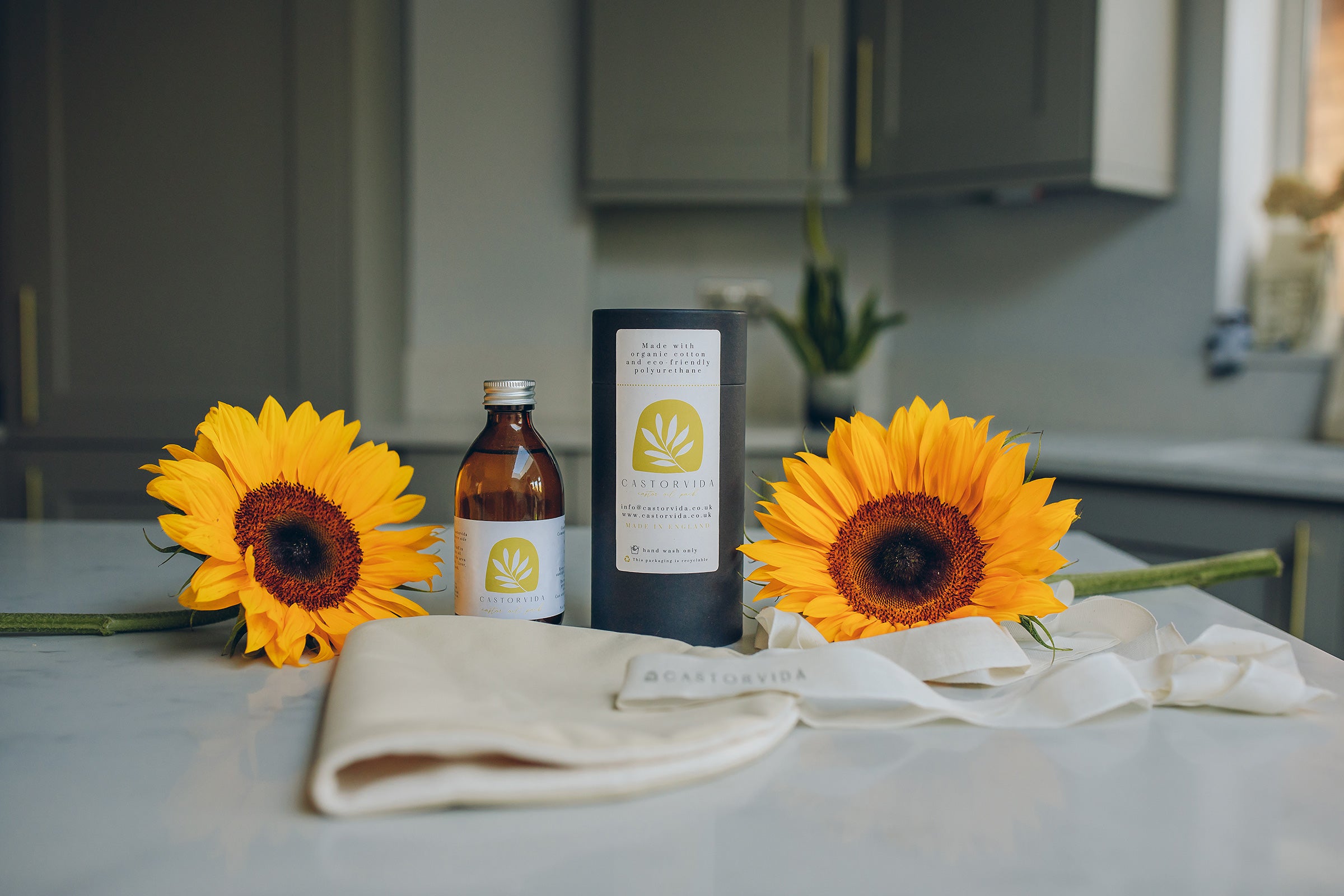By Catherine Morgan
The castor bean plant (Ricinus communis) has a rich history that goes at least as far back as the ancient Egyptians. There are even reports of castor oil being discovered in Egyptian tombs dating back to 4000 BC. According to ancient Egyptian medical texts, or papyri, from around 1500 BC, the plant had a wide range of medicinal uses – e.g. for intestinal infections, as a laxative, as a remedy for abscesses, eye irritation and baldness, to induce labour, and to expel fluid accumulation or promote urination. It is even rumoured that Cleopatra used castor oil to brighten the whites of her eyes – although this might not be true and certainly isn’t advised.
But the ancient Egyptians weren’t the only ones to appreciate castor oil’s health and beauty benefits. The historical use of castor oil for its therapeutic properties seemingly spans several ancient civilizations, including Greece, China and India, where it has reportedly played an important role in traditional medicine.
The Greek physician Hippocrates, the so-called ‘father of medicine’, reportedly recommended the use of castor oil for various health issues, and in India, castor oil has been used as part of the Ayurvedic system of medicine for a range of ailments – and is even mentioned as an effective purgative (i.e. it helps get rid of waste) in the Charaka Samhita, one of the oldest Ayurvedic scriptures.
 |
 |
As we headed into the 20th century, castor oil’s legacy wasn’t forgotten. But it was an American man called Edgar Cayce who apparently popularised the practice of using castor oil packs in western society in the 1930s. Cayce was as a psychic and intuitive healer whose readings primarily dealt with holistic health and the treatment of illness; and castor oils packs – where a cloth soaked in castor oil is applied externally to the skin – were one of his frequently recommended remedies. As written on the Edgar Cayce website: “The Cayce readings recommend castor oil packs in general to improve assimilations, eliminations and circulation (especially of the lymphatic system) and in particular to breakup adhesions of the lacteal glands…It was recommended, as part of a holistic approach, for epilepsy, gallstones, scleroderma, constipation (and other intestinal conditions) – just to name a few.”
Almost a century later, castor oil is still part of the holistic practitioners’ toolkit; and has even gained a new generation of fans thanks to the social media influencers who are using it to support their skin, hair, and health (just type in ‘castor oil’ in Instagram to find its fanbase!). But castor oil’s rise in popularity in recent years might also have something to do with its promotion by alternative healthcare coach and speaker Barbara O’Neill, a controversial figure who has been subjected to much scrutiny and censorship due to her beliefs and teachings about natural healing. O’Neill recommends castor oil for external use only, and says that is penetrates deeply in the body and may help a wide range of ailments.
 |
 |
As for Castorvida, the company was born from an idea of founder Alison Leighton, a colonic hydrotherapist and nutritional therapist, during the Covid era. Alison was interested in the potential benefits of castor oil for her clients – especially those with constipation; but realised the practical limitations of castor oil packing according to the Edgar Casey method – which required a flannel/cloth layer, a plastic layer, and a heat pad, and a significant amount of time to lie down.
“When telling clients about [castor oil packs], they were like ‘it sounds great but I’m not doing it because it’s so messy and fiddly,’ she says. “And who has an hour to lie in bed?...We had this ancient tradition that’s easy to do, inexpensive, isn’t complicated, and has all these benefits, so why aren’t we using it?... Clients didn’t want to do the traditional castor oil packing so I thought let’s make something that increases compliance, that would get people doing it, and that would fit into our lives... I saw a gap in the market.”
So, Alison set to work making a product – and not any old product, it had to be as ‘clean’ as possible. “I was very specific about [what I wanted],” she says. “It had to be organic, non- toxic, plastic-free… even the ribbons are organic!” And so the Castorvida compresses were born, and the rest, they say, is history.
Looking to the future, Alison hopes Castorvida will continue to innovate and promote sustainable, accessible, and effective health solutions that honour the plants rich history and proven benefits.
Of course, no one really knows what the future holds – but there will surely be a place for a millennia-old product like castor oil.
References
1. Ricin: An Ancient Story for a Timeless Plant Toxin - PMC (nih.gov)
2. Traditional ancient Egyptian medicine: A review - PMC (nih.gov)
3. The review on therapeutic uses of Castor oil (Eranda Tailam) with special reference to Ayurvedic and Modern science.. (pijar.org)
4. Edgar Cayce’s A.R.E. Your Body, Mind, Spirit Resource Since 1931

